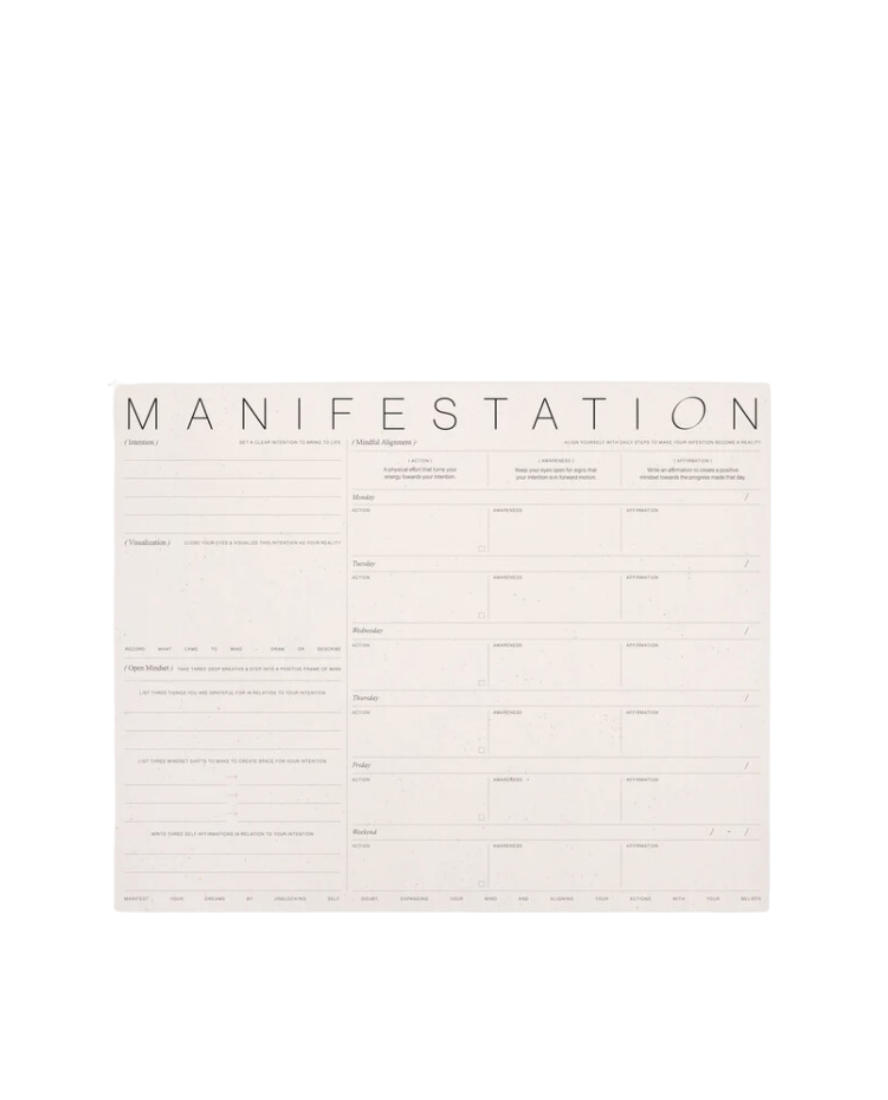
How To Be Financially Literate
Unlock the keys to financial literacy with our comprehensive guide. Learn essential skills and insights to navigate the world of personal finance confidently. From budgeting to investing, empower yourself with the knowledge needed to become more financially literate.
By Anna Myers / Jan 16 2024

Ah, money. What a weird construct that we little humans have built ––even though as a concept, money has been around for thousands of years, we still face so much stigma and confusion when trying to understand basic concepts or set ourselves financial goals of any kind.
Whether you’re making bank, struggling to reign in your spending, terrified by the sensationalist headlines or just trying to fill in the gaps of what everybody else seems to understand better than you do (spoiler alert: they don’t, we’re all just trying our best!), you’ve come to the right place to start off your journey to financial literacy, and in turn, financial freedom.
what is basic financial literacy?
Basic financial literacy is… well, quite basic! It means knowing how to best manage your money, including personal budgeting, investing, and an understanding of what various financial services can do for you.
Is it a skill that is crucial no matter what your financial situation, how you were raised, what your job entails or what your definition of wealth might be. However, we’re sure you’ll agree, it is particularly paramount these days, as a cost of living crisis rages on, political instability is the new norm, and the shocks of the Covid-19 pandemic are still reverberating through society and markets everywhere.
SHOP
vitamins + supplements
why is it important to have a basic financial understanding?
Let’s be honest: the modern financial world can be scary, unpredictable, confusing and at times, even predatory. Unnecessarily so, because financial basics should be taught in schools, and we’d all be better off!
There is, however, an element of intentionality to the system and how it is set up: the more confusing the whole thing can be, the more vulnerable we will all be to scams, fraud, political propaganda and so on.
Even a basic understanding of financial literacy can prevent us from making costly and regretful mistakes, from improperly handling our money to preparing for emergencies and even having the confidence to hold our own at work. It is imperative that we learn to stretch the muscle of financial literacy, at best we can, so we can approach major life steps and decisions with greater security and less defencelessness.
how to be financially literate
Financial literacy involves a lifelong learning journey, but it’s important to start wherever you are and with whatever ability you have to understand it today. Here’s some steps you can take right now to see where you’re at, compared to where you want to be.
step 1: do some basic maths
I hate maths, so this is not going to be overly complicated, but knowing how much money you’re bringing in every month and how much you’re spending is your number one step to financial freedom. Use a budgeting app or a basic spreadsheet, collect any recurring expenses and tally them up against your total income, and you’re good to go. It doesn’t need to be fancy, but it does need to be accurate.
step 2: build up an emergency fund
Having some money set aside for emergencies should be everybody’s number one goal when it comes to getting your finances in order. How much to budget for “emergency prepping” is a very personal matter, however, most experts recommend estimating an essentials-only budget and trying to set aside a few months’ worth.
We saw how this, even just two or three months, really made a huge difference during the Covid-19 pandemic, but it could also come in handy should an unexpected bill come in, should an appliance break, should your car need repairs or should you need to get by without being able to work for a few months for whatever reason.

Image credit: Pinterest

step 3: learn about debt + credit
I used to think that terms like “credit score” and “credit report” only applied in America, and I didn’t need to worry about any of it here in the UK. I was wrong!
Wherever you are in the world, the process of applying for a loan, lease, or any type of financing will in all likelihood involve your personal credit score, calculated by credit reference agencies (CRAs) like Experian, Equifax and TransUnion.
It will be impacted by late or missed payments, defaulting on borrowed money, credit card debt, or going over your credit limit, and will range from very poor to excellent depending on your personal evaluation. Learn more about credit scores in the UK here.
step 4: use financial management tools + services
You’re not alone on your journey, and the internet is here to help! Besides your helpful guides in the Finances vertical here at Dandy, you can check out Investopedia for free and awesome articles on how to navigate the gender gap in financial well-being, or The Financial Diet for helpful tips and templates on everything from negotiating a raise to building a sustainable freelance business.
You can use an app like Monzo to save on fees when travelling abroad or to send and receive money from friends, or listen to Forbes-recommended money podcasts for advice and insights into a world you might just need a little extra exposure to. There’s more tools and services to help you manage your money than you might think, so take advantage of them whenever and however you can!
step 5: learn how to identify fraud
Hackers and scammers have gotten incredibly, scary good at making their fraud attempts look as real as they could be. I’ve nearly fallen for a few fake HMRC scams myself, and I’ve grown suspicious of most unwanted or unexpected emails, texts, and phone calls I get.
A good rule of thumb is to google the type of email, text, or phone call you’re suspicious of, using a few keywords and following them with “scam” or “legit” to find possible explanations online.
If you’re still not sure, find out how to keep your online banking details secure on the Financial Fraud Action UK website, get advice on how to shop and make secure payments online from Get Safe Online, and get tips on how to keep your money safe from fraudsters on the Action Fraud website.
the bottom line
Try to research and practice as many different financial skills as you can, such as budgeting and building up credit, or keeping track of your expenses and being diligent about paying bills and fines on time.
The only goal you should set for yourself is to educate and protect yourself as best as you can, so you can make sound financial choices and invest in your future without falling prey to poor spending decisions or unforeseen and unwanted debt.
DANDY DEVOTION...
Share









